Departmental news
UKRI Future Leaders Fellowship awarded to Dr Tom Gur
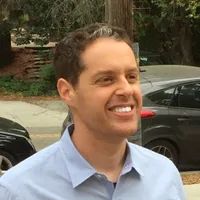 We are delighted to report that Dr Tom Gur has been awarded a Future Leaders Fellowship on Foundations of classical and quantum verifiable computing, funded by £892K from UK Research and Innovation. Professor Artur Czumaj, the head of the department's Theory and Foundations research theme, has commented:
We are delighted to report that Dr Tom Gur has been awarded a Future Leaders Fellowship on Foundations of classical and quantum verifiable computing, funded by £892K from UK Research and Innovation. Professor Artur Czumaj, the head of the department's Theory and Foundations research theme, has commented:
We congratulate Tom and look forward to hosting this exciting project that he will lead. This prestigious award confirms the high international standing of research at Warwick in theoretical computer science and its rich interfaces with other fields.
Tom’s Future Leaders Fellowship is concerned with algorithms and cryptographic protocols, both in the classical and quantum settings, and their applications to blockchain technology and delegation of computation to the cloud. This research programme is inherently interdisciplinary, involving fundamental research at the intersection of computer science, pure mathematics, and quantum physics.
The vision that this project aims to achieve is to develop new and exciting mathematical tools and to capitalise on their power to the end of pushing the frontiers of verifiable computing; providing new methodologies for meeting the challenges imposed by big data and the societal need for decentralised systems.
Warwick and Alan Turing Institute partnership brings Data Science for Social Good Fellowship to the UK this summer
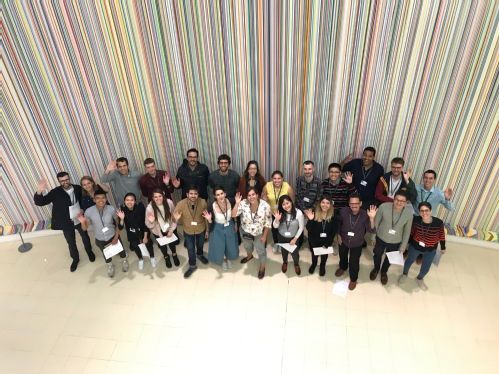
This year's Data Science for Social Good (DSSG) Fellowship programme is being held in the UK for the first time. The University of Warwick is hosting the Fellowships this summer in conjunction with the Alan Turing Institute. The 2019 programme is running from June 10 to August 28.
The Fellowship is a project-based training programme to supply data scientists with skills to create data-driven solutions to real-world problems. It trains aspiring data scientists to work on data mining, machine learning, big data and data science projects with social impact.
It was first pioneered by the University of Chicago, and since 2013 has seen more than 200 graduate and undergraduate students studying computer science, social sciences, statistics, public policy and other quantitative fields undertaking a DSSG Fellowship at the University of Chicago.
The Alan Turing Institute’s vision to advance research for public good and train the next generation of leaders is directly aligned with DSSG’s own goal to produce data scientists with strong skills in solving real-world problems.
Fellows work with non-profit and government partners around the world. To date, more than 60 projects have run, which have helped lots of organisations do more with their data, enhancing their services, interventions and outreach so that they can fulfil their mission of improving lives across the world.
Further details on the fellowship can be found here.
Promotion for Dr Hongkai Wen
 We are delighted to report that Dr Hongkai Wen has been promoted to Associate Professor, effective from 1 July 2019. Quoting from his recommendation,
We are delighted to report that Dr Hongkai Wen has been promoted to Associate Professor, effective from 1 July 2019. Quoting from his recommendation,
Hongkai’s publication trajectory has been impressive in both quality and quantity. He consistently produces papers at leading international publication venues, at conferences as well as in journals. Remarkably, Hongkai has already forged strong collaborative links not only with a spectrum of colleagues in the department, but also across the Warwick campus, in particular with researchers in WMG. In the past academic year, Hongkai brought cutting-edge material into our popular 3rd-year module on robotics, which will benefit a number of forthcoming cohorts of students.
it remains to say many congratulations!
Warwick lead the first verifiable e-voting trial in the UK
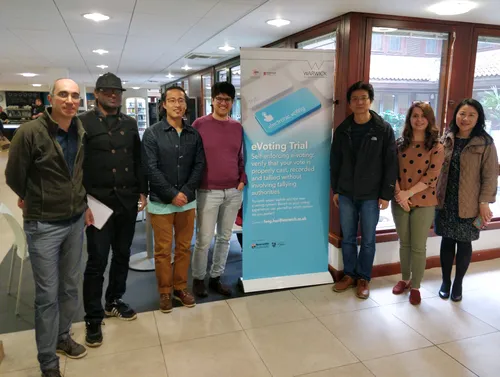
Researchers from the Department of Computer Science, University of Warwick, joined by colleagues from Newcastle University and the University of York, led the first successful trial of an end-to-end verifiable e-voting system for polling station voting in Gateshead, Newcastle during the local elections on 2 May 2019. This trial was supported by the electoral service officials at the Gateshead council and was approved by the University of Warwick’s research ethics committee.
This is the first trial of a fully electronic voting system with end-to-end (E2E) verifiability for polling station voting in the UK. Being E2E verifiable, the system allows voters to independently verify if their votes are cast-as-intended, recorded-as-cast and tallied-as-recorded while preserving their privacy. By contrast, with paper ballots, voters must trust other people to record and tally their votes correctly, but they cannot verify this by themselves. The trialled e-voting system is the research outcome of an ERC starting grant, led by Professor Feng Hao from the Department of Computer Science. The prototype was developed under the support by Innovate UK and the trial was sponsored by the Royal Society.
On the election day, voters went to the Gateshead civic centre polling station to vote on paper ballots as usual. Upon exit from the polling station, they were invited to try a touch-screen based e-voting system for a mock election involving a set of dummy candidates. Voters were then provided with an anonymous survey form to indicate based on their voting experience, which of the two voting systems did they prefer. Nearly half of the voters at the Gateshead civic center polling station participated in this trial and provided many useful feedbacks. From the survey results, voters generally found the trialed e-voting system easy to use, and preferred it to paper ballots.
From Gateshead Council News, this is "a new system that could completely revolutionise the elections system". The Gateshead trial is also covered in the BBC News, University Press Releases, Webroots democracy, Government Business, Gizmodo, and ChronicalLive. A video demonstration of the trialled e-voting system is available on YouTube.
Best Paper Award at STOC 2019
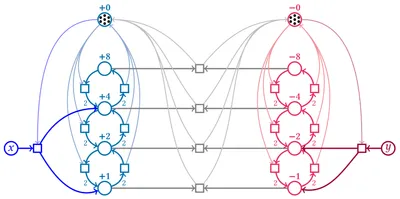 The contribution The Reachability Problem for Petri Nets is Not Elementary by Wojciech Czerwinski, Slawomir Lasota, Ranko Lazic, Jerome Leroux and Filip Mazowiecki has won a Best Paper Award at the 51st Annual ACM Symposium on the Theory of Computing, to be held on June 23-26, 2019 in Phoenix, AZ.
The contribution The Reachability Problem for Petri Nets is Not Elementary by Wojciech Czerwinski, Slawomir Lasota, Ranko Lazic, Jerome Leroux and Filip Mazowiecki has won a Best Paper Award at the 51st Annual ACM Symposium on the Theory of Computing, to be held on June 23-26, 2019 in Phoenix, AZ.
This work, which was supported by a Leverhulme Research Fellowship, shows that the central verification problem for Petri nets is much harder than has been known since the landmark result of Richard Lipton in 1976. Petri nets, also known as vector addition systems, are a long established model of concurrency with extensive applications in modelling and analysis of hardware, software and database systems, as well as chemical, biological and business processes.
Promotions for two academic staff
 We are delighted to report that Dr Sara Kalvala and Dr Ligang He have been promoted to Reader, effective from 1 June 2019. Quoting from their recommendations,
We are delighted to report that Dr Sara Kalvala and Dr Ligang He have been promoted to Reader, effective from 1 June 2019. Quoting from their recommendations,
Dr Sara Kalvala is one of the most experienced academics in Computer Science, with extensive contributions to teaching (at all levels), research (in core computer science, interdisciplinary and recently in computer science education) and administration (in departmental, institutional and national settings). Sara has also been leading a range of outreach activities, as well as being one of the most collegiate members of the department.
and
Dr Ligang He has in recent years grown not only into one of the leaders of his wider research area in the department (high-performance systems), but also into a highly competent teaching innovator, with exemplary impact, outreach and engagement at the international level, as well as a reliable, industrious and forwards pushing colleague in the department. Among his other achievements is that Ligang has been successfully supervising a growing group of PhD students; he has graduated 5, and is currently supervising 7 PhDs.
it remains to say many congratulations!
Welcome to our new students who have joined us this week!
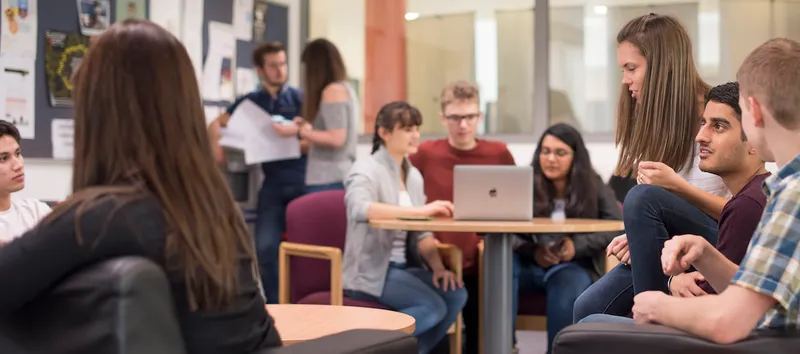
We welcome our new students who have joined the department this week and congratulate them for their excellent results prior to coming here! For the first time ever, they are joining us for a Welcome Week before lectures start next week. We are excited to have so many outstanding new students and are looking forward to seeing them become excellent Computer Scientists in the coming years!
Dr. Gihan Mudalige Awarded a Royal Society Industry Fellowship
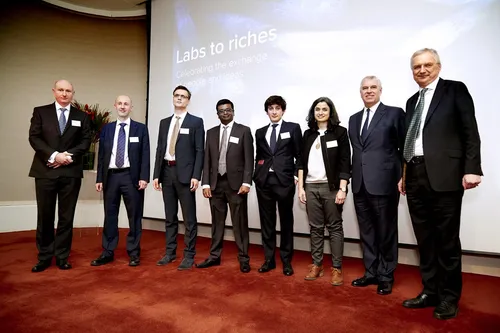
Dr. Gihan Mudalige has been awarded a 4-year, Royal Society Industry Fellowship to work with Rolls Royce plc., on their turbomachinery design simulation applications from September 2018.
Companies such as Rolls-Royce, crucially depend on High Performance Computing (HPC) based numerical simulation applications for the design of turbomachinery. These complex multi-physics and engineering applications, predominantly based on computational fluid dynamics (CFD), even in their simplest form, provide insights into aspects of aircraft engines which could not otherwise be achieved in the absence of physical testing. Developing such simulation applications is difficult and expensive, taking years to write, test and verify. They can easily contain millions of lines of code. Consequently, such programs have lifetimes of decades compared to the supercomputers that run them, which advances every 2-4 years. In the next five years, HPC systems are expected to reach thousand times the capabilities of current systems, attaining exascale (1018) performance where a single system can perform million-trillion computations every second. The range of processor architectures, networks, memory, their configurations and scale make it difficult to know what type of systems will dominate exascale machines and how best to programme them to gain optimal performance. Poor performance means less simulation for your money or worse, a completely inoperable suite of codes. Such an outcome will mean a significant loss of investment. The underlying objective of this fellowship project is to re-design Rolls-Royce’s simulation codes to meet these challenges. This work will utilize the OP2, high-level embedded Domain Specific Language developed by Dr. Mudalige and his research collaborators at University of Oxford, PPCU Hungary and Imperial College London, aiming to re-engineer Rolls-Royce’s CFD applications suite and deploy it for production simulations.
Photo (© The Royal Society): The Royal Society Industry Fellows of 2018 (Round 1): from left to right Duncan Maclachlan, Steve Morgan, Del Atkinson, Gihan Mudalige, Anas Al Rawi, and Aurora Cruz-Cabeza, with HRH Prince Andrew, The Duke of York and Prof. Andrew Hopper, Labs to Riches presentation event, 20 March 2018, at the Royal Society head office in London.
Mathematical Sciences Building 'topped out'
 Thursday 1 March saw the university's Mathematical Sciences Building project officially 'topped out': an event celebrating the construction as it reaches its highest point.
Thursday 1 March saw the university's Mathematical Sciences Building project officially 'topped out': an event celebrating the construction as it reaches its highest point.
To mark the occasion, representatives of each of the Computer Science, Statistics and Mathematics departments decorated a central roof steel beam with an illustration of their subject. For our department, Professor Mike Paterson FRS drew his gadget for proving that the planar 3-colourability problem is NP-hard, a piece of research from the first decade of Computer Science at Warwick that is still fundamental today and being taught to our students. Professor Paterson commented:
I am delighted to have played a part in this momentous and happy event, that celebrates the many contributions of those involved in this project as well as those who have worked towards the three departments reaching this milestone. The state-of-the-art building, constructed by local people, will foster internationally leading collaborative research and teaching in our three rapidly growing subjects.
Warwick Computer Science tops Russell Group institutions in 2017 National Student Survey
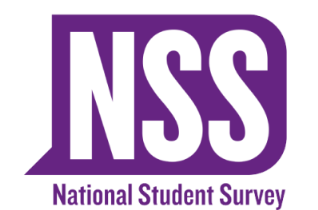
In the recently released 2017 National Student Survey results, Warwick Computer Science ranked 2nd of the 104 computing departments in the UK, with an overall student satisfaction rate of 96%. Among Russell Group competitor institutions (an elite group of teaching and research universities in the UK), Computer Science at Warwick is ranked 1st for overall student satisfaction.
The National Student Survey (NSS) canvasses student satisfaction across all departments at all UK universities and remains the biggest survey of student satisfaction in the UK. Students are asked to respond on topics including teaching quality, learning opportunities, academic support, and organisation and management.
Among Russell Group institutions, Computer Science at Warwick ranked top in almost all major categories*:
- 1st for overall student satisfaction
- 1st for teaching quality
- 1st for learning opportunities
- 1st for assessment and feedback
- 1st for academic support
- 1st for learning resources
- 1st for learning community
- 1st for organisation and management
Throughout this summer investment continues in new teaching and laboratory facilities, with Warwick’s new interdisciplinary Mathematical Sciences building (for the Departments of Computer Science, Mathematics and Statistics) opening in 2018.
*These figures are based on the Russell Group institutions for which there is publishable data for the subject of Computer Science in 2017.
